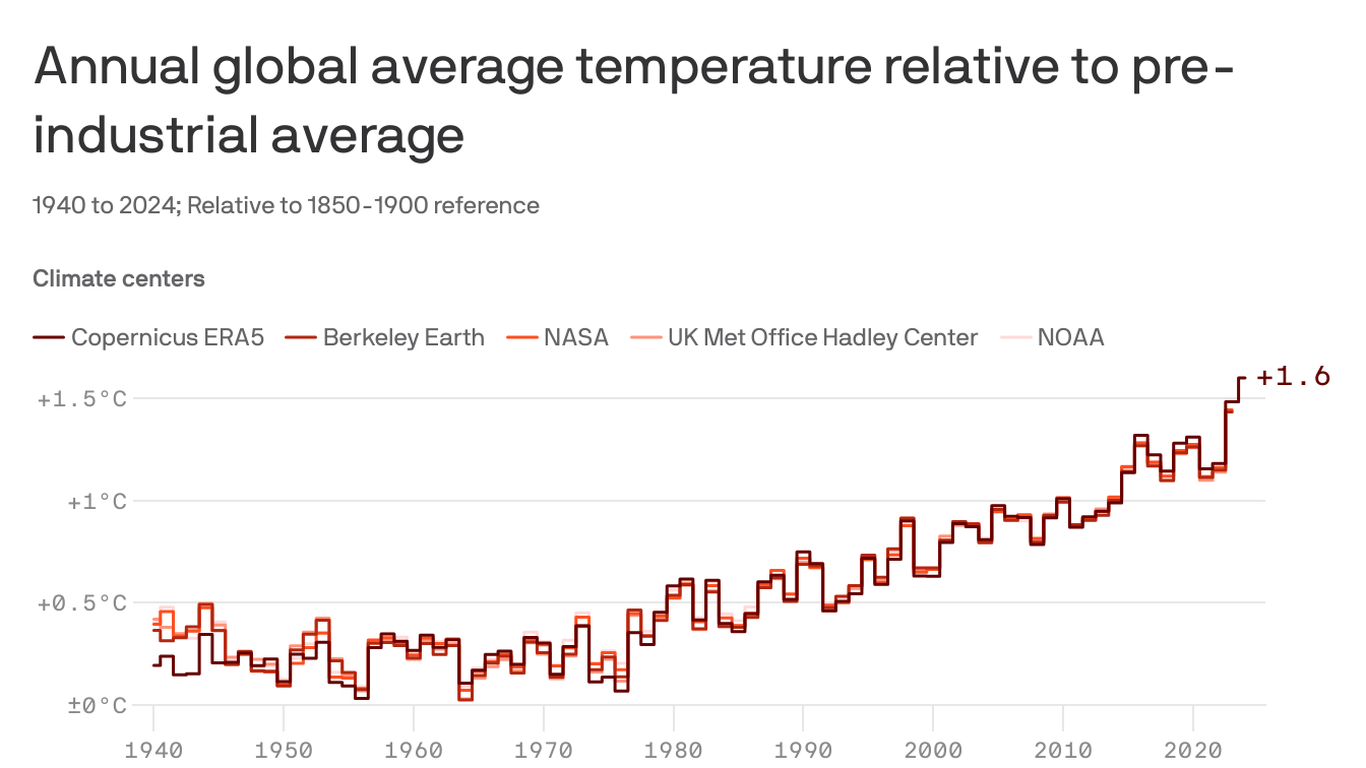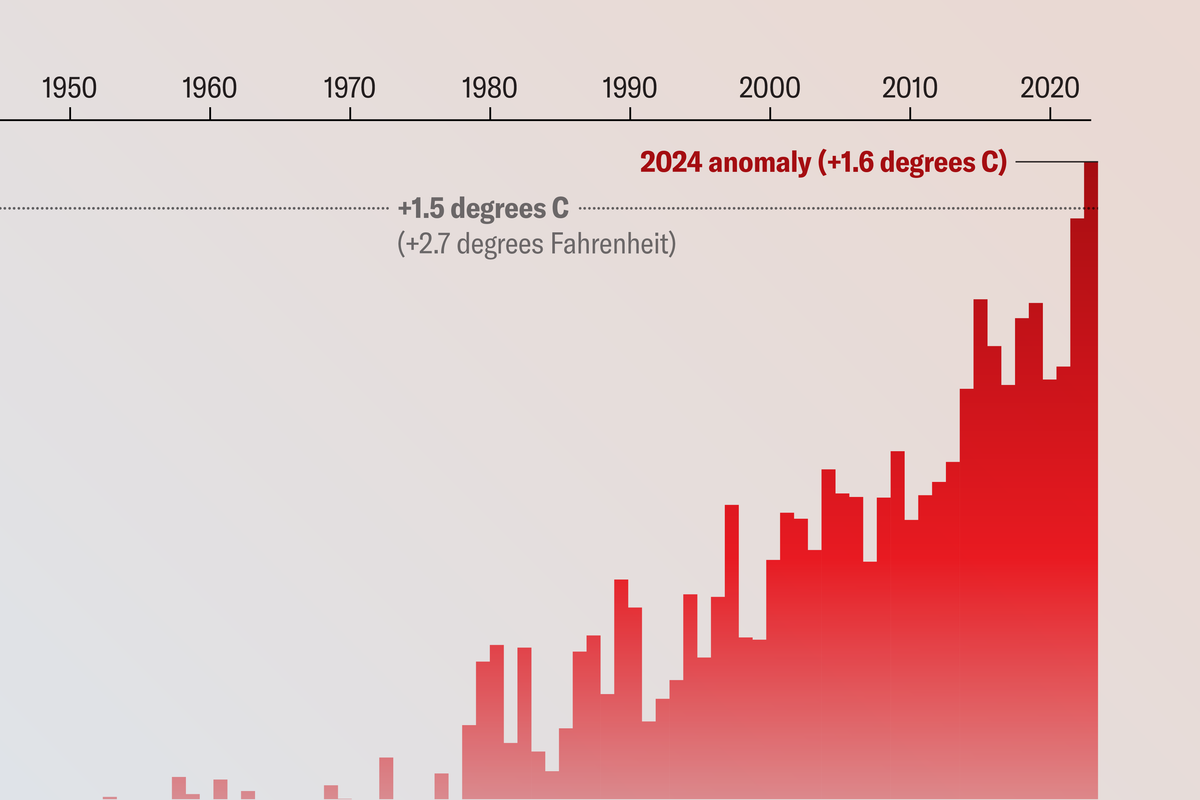2024 Becomes Hottest Year on Record, Exceeding Paris Climate Agreement Threshold
NASA and Copernicus confirm 2024 as the hottest year on record, surpassing the 1.5°C threshold of the Paris Climate Agreement, prompting urgent climate action.
Overview
NASA and NOAA report 2024 as the planet's hottest year ever, with temperatures 1.6°C above pre-industrial levels. This marks a worryingly significant breach of the Paris Agreement's 1.5°C limit. The consecutive record-breaking years signal escalating climate crises, with evident impacts including extreme weather events, rising sea levels, and biodiversity loss. Scientists warn of catastrophic consequences if trends persist. The ongoing El Niño may have contributed to this year's warmth, while La Niña is anticipated for 2025, potentially easing temperatures. Nonetheless, the urgency for global policy action and emissions reductions remains paramount.
Report issue

Read both sides in 5 minutes each day
Analysis
Analysis unavailable for this viewpoint.
Articles (18)
Center (9)
History
- 1y

 4 articles
4 articles
- 1y

 4 articles
4 articles
- 1y

 6 articles
6 articles















